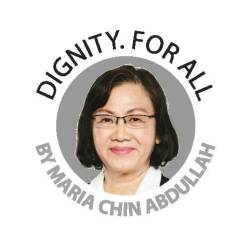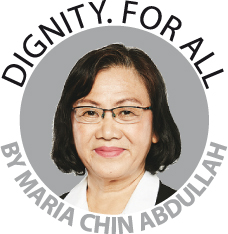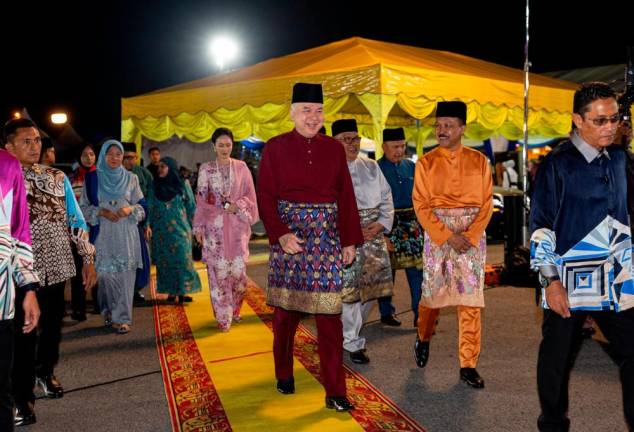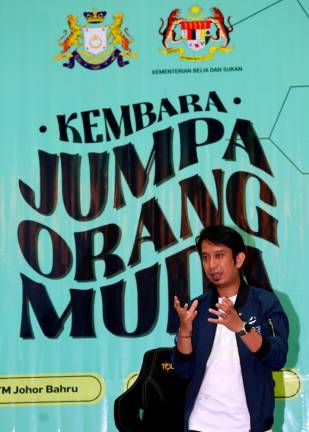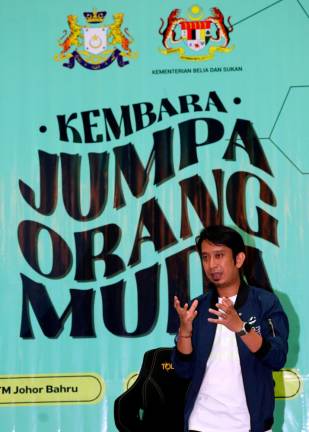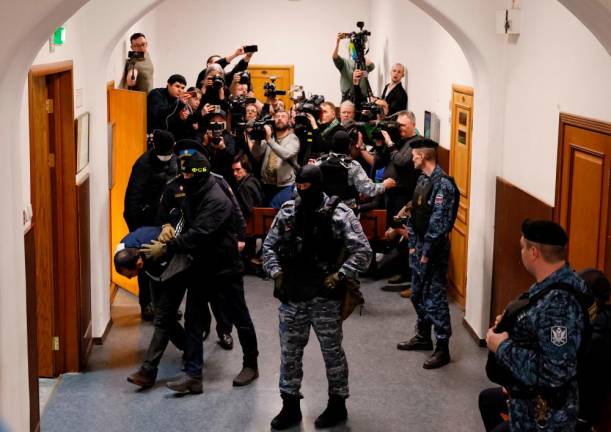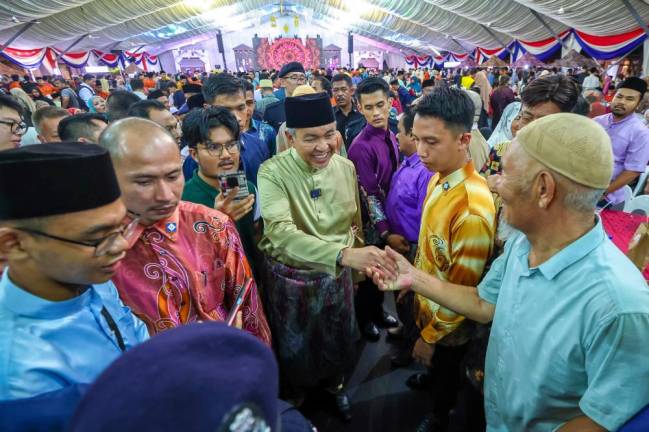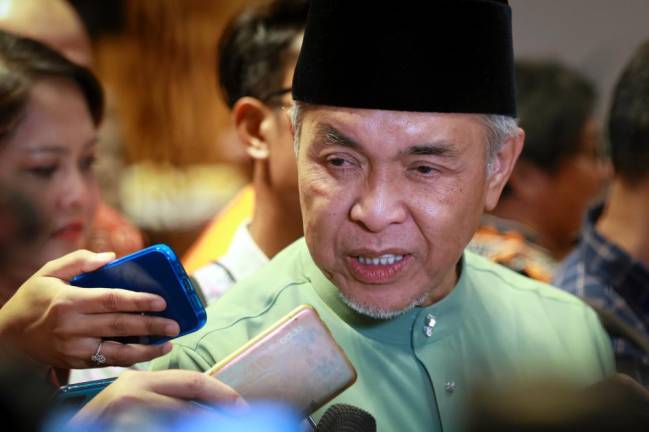I OFTEN dream of a Malaysia where no one is left behind. As Member of Parliament for Petaling Jaya, I often encounter the poor, discriminated and marginalised. They struggle to put food on the table, are deprived of opportunities because of their class, gender or ethnicity, and have inadequate access to transport, education and healthcare.
Even in a modern and developed city like Petaling Jaya, we do not have a public government hospital and the nearest hospital is 26km away, an entire family of five to six individuals survives on just RM800 a month and children are forced to leave school to work.
The great thing is that I am not alone in my vision for Malaysia and with the change of government, more and more organisations have come forward to collaborate to resolve key issues. The new government has inherited a bleeding and corrupt economy and, we must work quickly to bridge the trust between government, corporations, civil society and the public. We can do this through knowledge sharing and regular dialogue. More importantly, all sides must be prepared to keep their promises to each other and remain focused on rebuilding the economy to move forward.
To stay focused in Petaling Jaya my team and I have adopted the ambitious effort set out in the 17 sustainable development goals (SDGs). The SDGs offer government agencies, private enterprise and civil society organisations (CSOs) a guide to refocus our developmental issues.
SDG 17 reminds the government to stay committed to creating a more participatory approach to development. First, it is necessary for the government to provide a national institutionalised framework for decision making that is in line with sustainable development. This would also mean that not only government institutions must be ready for openness but so must other stakeholders.
The battle to overcome poverty, generating growth, uplifting labour and our many development issues can only be won if all are involved and are engaged.
It is challenging as we have to unlearn the “usual” way of doing things where we have to stop taking money for personal gains or rewards, stop nature’s destruction, especially those that encroach into local and indigenous culture and way of life in the name of profits, reduce wasteful production, respect peoples culture, religion and race without prejudice, redistribute resources and prosperity without dependency, engage and listen to our worst critics. If we do all these, we are on the right track to a new day.
We can start by having guidelines for a framework that facilitates decision-making at the government, corporate and individual level that will hopefully translate into concrete action plans by informing all the programmes and projects prepared by the various sectors.
The Philippines, Mongolia and Nepal have legislative frameworks for civic engagement.
The UK National Planning policy ensures that local councils take into account the three pillars of sustainable development when making policies and requires them to work with other councils to address priorities such as transport and environmental issues across local boundaries. This is something that could be adopted in Malaysia to enhance partnership between the three levels of government. A good beginning would be to have local elections, including the mayor’s post, to ensure better governance and decentralisation of decision making.
A city deal (a partnership between the three levels of government and the community to work towards a shared vision for productive and liveable cities) between the local council and the state or federal government could also guarantee that development continues despite any future change of directive or policy, and especially in opposition-controlled states.
In Malaysia, CSOs are organised. There is an informal group, CSOs Platform for Reform Agenda which has been trying to engage the ministries to advocate reforms and there have been gains, as well as frustrating and slow responses. In the Parliament, the Speaker Datuk Mohamad Ariff Md Yusof together with civil society have mooted the All-Party Parliamentary Group (APPG) to foster greater engagement between civil societies. This is modelled on the UK parliament experience. APPG’s membership is cross-party, made up of members from the upper and lower houses as well as civil society. They meet, relatively informally, to discuss issues reflective of concerns raised in Parliament. Issues can be either country based or subject-based. This bold effort helps to deepen democracy in Parliament and more importantly, rises above political divisions to bring forth a more inclusive engagement over policies and law making.
We need more innovative forms of engagement such as in Indonesia. It has legislation on procedures for making law (RUU Tentang Tata Cara Pembentukan Peraturan Perundang-Undangan) that was advocated by civil society alliances. This resulted in the first united effort in establishing a foundation for public participation in policy formulation in Indonesia.
Partnerships promote a distribution of resources. Even a small contribution shows willingness to provide assistance which runs above race, religion, class and is needs-based, collective and in the spirit of shared prosperity.
Many companies run corporate social responsibility programmes that work to create more opportunities for marginalised communities. One example is Deloitte, that runs tuition classes that emphasise learning through interactive games for urban poor children in Desa Mentari.
My office runs a weekly food bank programme for 114 families earning less than RM1,500 a month in the Lembah Subang 1 Peoples’ Housing Project and we have been blessed by the generous donations from individuals and private sponsors who share the same vision.
Engagement must also involve people most affected at the constituency level as without that, policies and laws will not be fully representative.
In Petaling Jaya, my office runs a health programme for 50 families from the B40 community from Taman Medan Cahaya. The project started as a collaborative effort of volunteers from my office and doctors and students from University Malaya Medical Centre. As the programme continued, many more partnerships with interested groups were formed. The fact that we were able to inspire change in people’s attitudes not just to pursue a healthy lifestyle but also to be more active in their community has brought in bigger sponsors for the project’s second phase.
When residents at Taman Medan Cahaya recently complained about how new lifts installed by contractors hired by the previous government were not running, the issue was brought up to the Housing and Local Government Ministry. Their quick response working with the Parliament and state assembly helped to resolve the issue.
A sustainable approach to development is very important but it cannot work without engagement from everyone. Even if it means handing out canned sardines to the poor for an hour each week, we must all play a part if we wish to create a better nation for all.
Comments: letters@thesundaily.com



